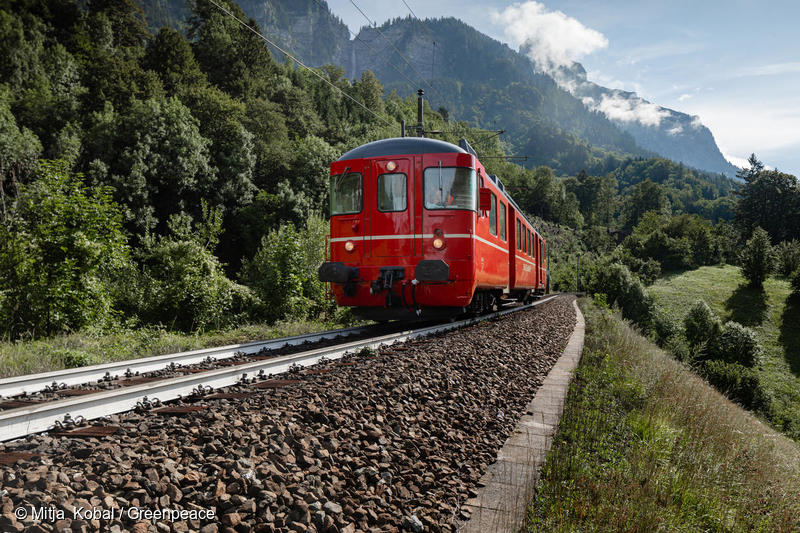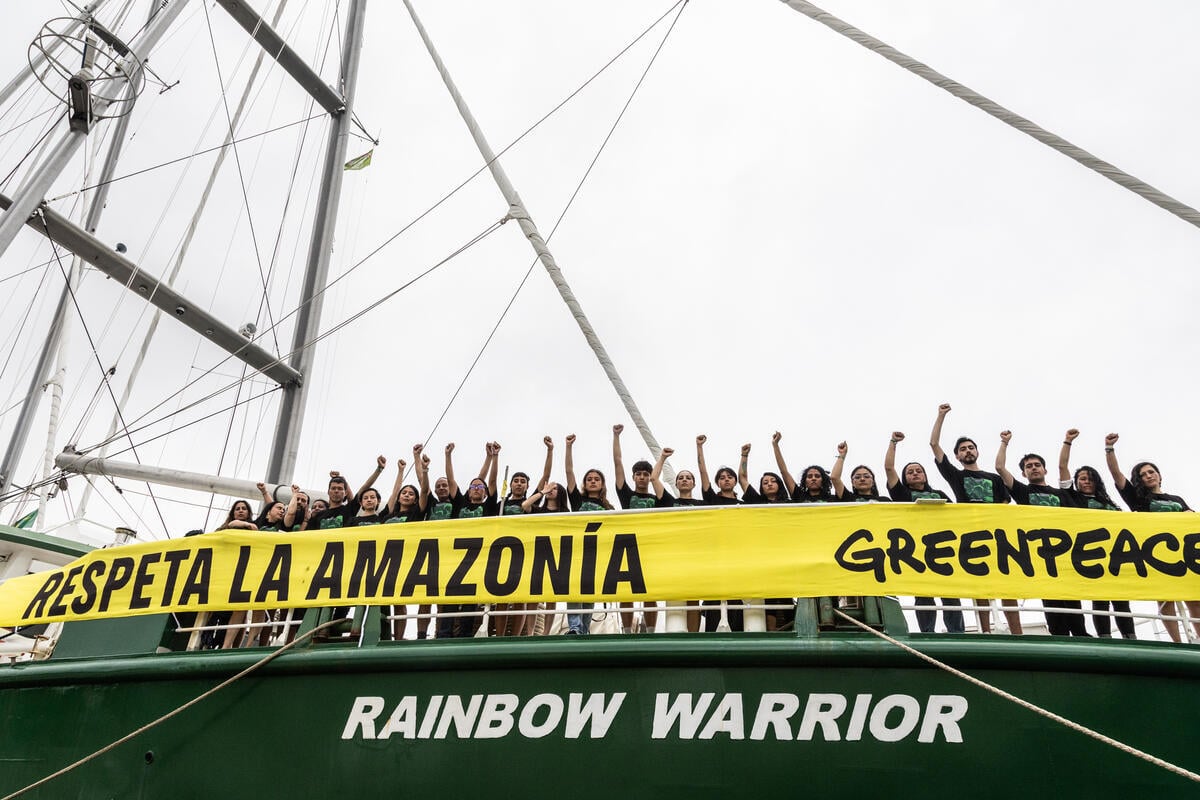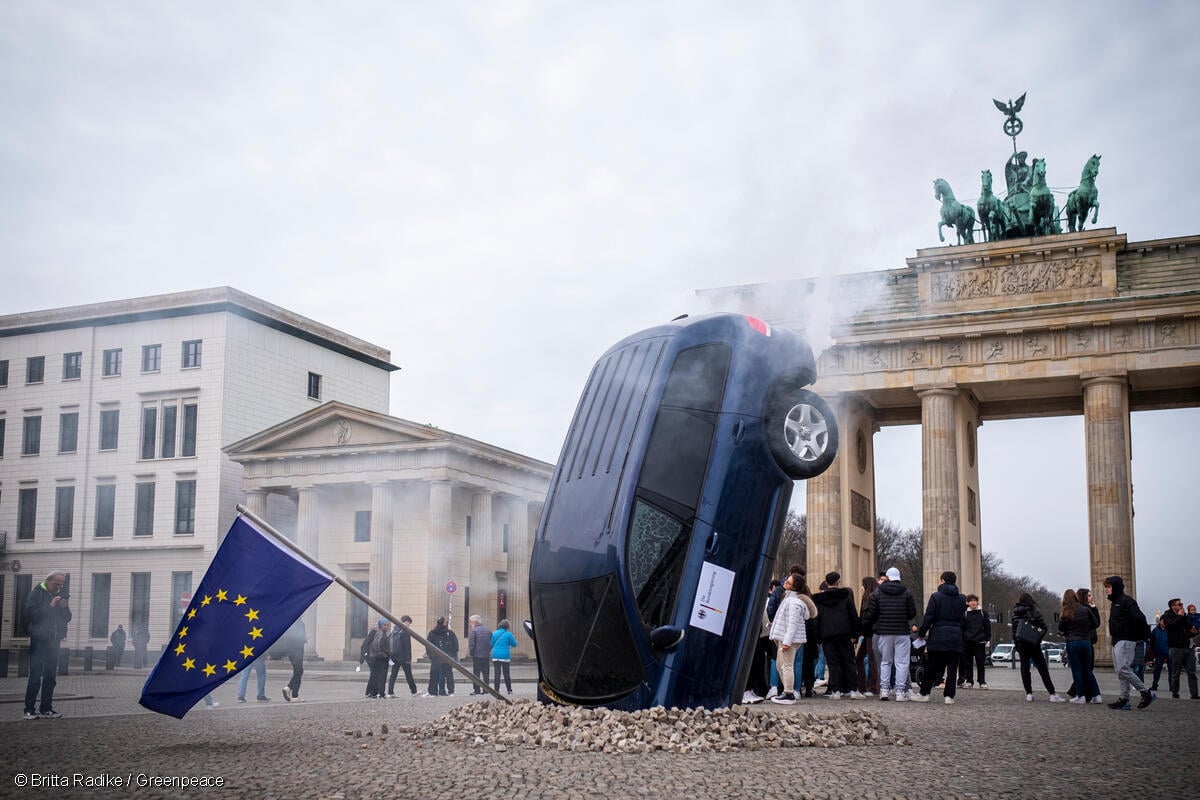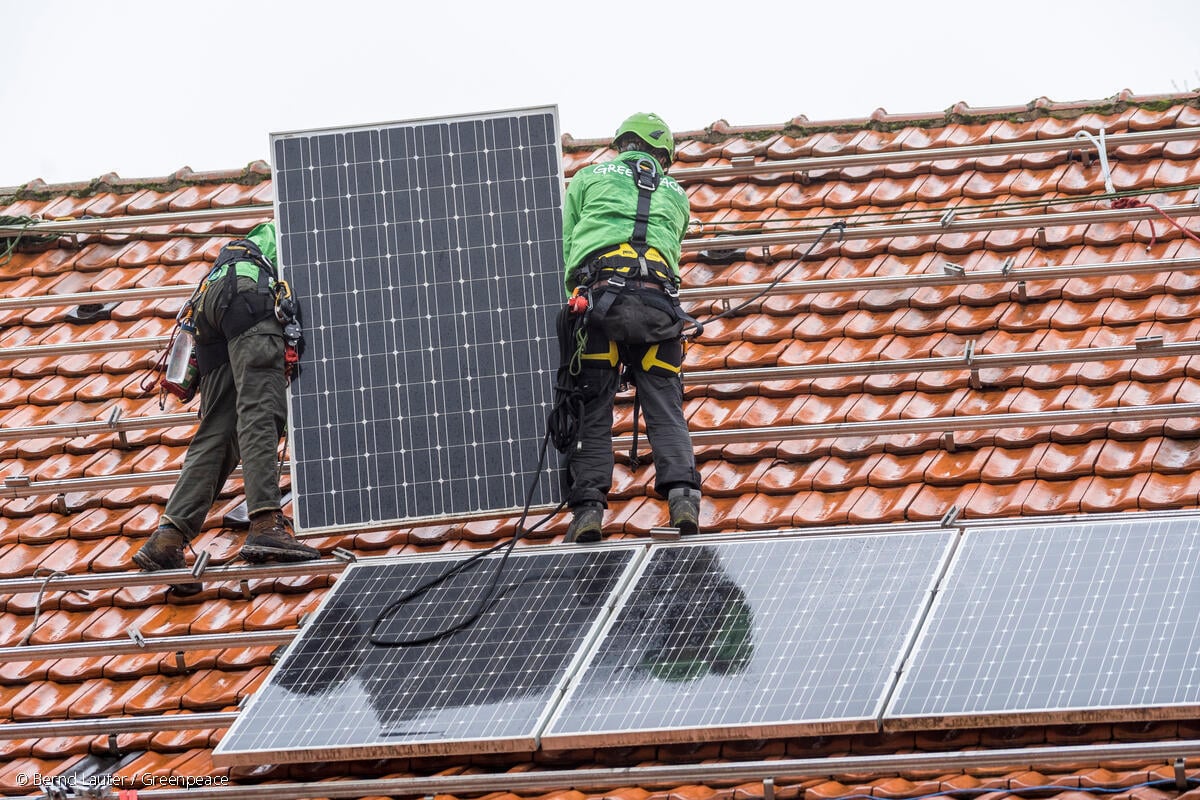
Brussels – Environmental groups called for urgent and concrete action to trigger a rail renaissance and accelerate a shift from air and road travel to trains, as the European Union prepares to launch the European Year of Rail on Monday.
On the same day, ministers from 27 European governments are due to make an announcement about their commitment to boost rail travel, while EU transport ministers will hold a special meeting on Tuesday to discuss the future of rail.
Greenpeace EU climate and transport campaigner Lorelei Limousin said: “Governments and the EU must trigger a rail renaissance and shift away from planes and cars, instead of sending mixed messages with bailouts for airlines and funding for new motorways. Taking trains is one of the best ways to fight the climate crisis, but we need coherent policies and investment to make rail easier and more accessible. After years of neglect, it’s time to back the bright future of rail.”
In a letter to senior EU politicians, Greenpeace and seven other environmental groups pressed governments and the EU to take five priority measures:
- Revive 30 under-used international routes to build a truly connected European network and start rolling out new day-time and night services from the end of 2021.
- Invest in railway upgrades and in new and refurbished trains to build a European pool of compatible rolling stock.
- Make travelling by train cheaper and easier than flying by phasing out air travel subsidies and introducing a ban on short-haul flights, where there is a convenient night train or a day-time connection.
- Make trains accessible to all, including people with reduced mobility, and guarantee international passenger rights, including on journeys involving more than one train.
- Regulate to make railway companies share dynamic data and allow the creation of a Europe-wide train booking system.
New research released by the European Environment Agency on Wednesday shows rail is the greenest mode of transport and calls for short-haul flights to be replaced by trains to help tackle the climate crisis.
Greenpeace criticised plans by the European Commission, under the EU’s Smart and Sustainable Mobility Strategy, to boost 15 rail pilot projects and make trips under 500km carbon neutral by 2030 as “too little, too late”.
Later this year, the Commission is expected to release a study on night trains and to table an action plan to boost long-distance and cross-border passenger rail services.
Billions of euro in funding are up for grabs under the EU’s unprecedented Covid recovery plan. The coming weeks will be decisive as governments must apply for the money by submitting their national plans by 30 April. Several governments have already paid or pledged billions in loans and bailouts to struggling airlines, with no strong strings attached in terms of climate action and workers’ rights.
Rail accounts for only 7% of passenger transport in the EU, with less than 8% of that made up of cross-border traffic. Trains are responsible for only 0.4% of EU emissions from transport.
*** Consult the full list of Greenpeace measures to put Europe back on track
Contacts:
Greenpeace EU climate and transport campaigner Lorelei Limousin:
+32 (0)477 79 04 15, [email protected]
Greenpeace EU press desk: +32 (0)2 274 19 11, [email protected]
For breaking news and comment on EU affairs: www.twitter.com/GreenpeaceEU
Greenpeace is an independent global campaigning organisation that acts to change attitudes and behaviour, to protect and conserve the environment and to promote peace. Greenpeace does not accept donations from governments, the EU, businesses or political parties.
EU Transparency Register: 9832909575-41



